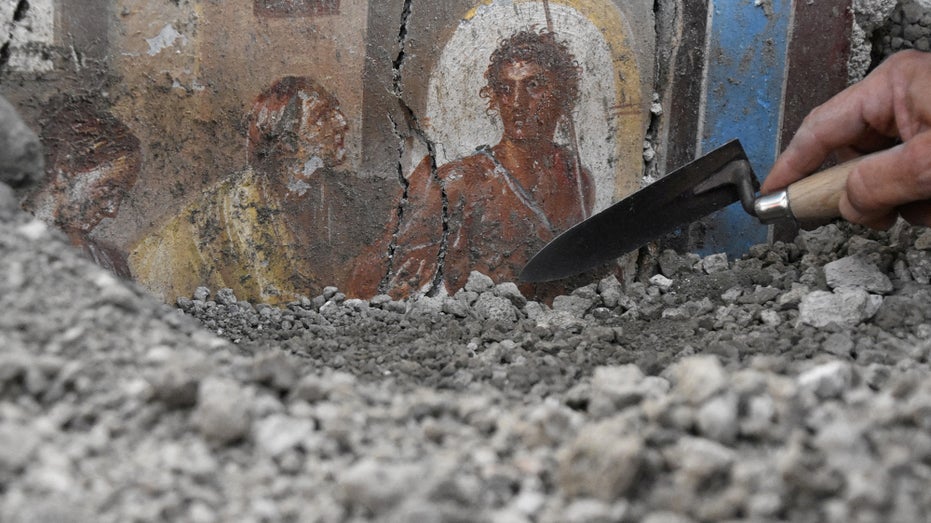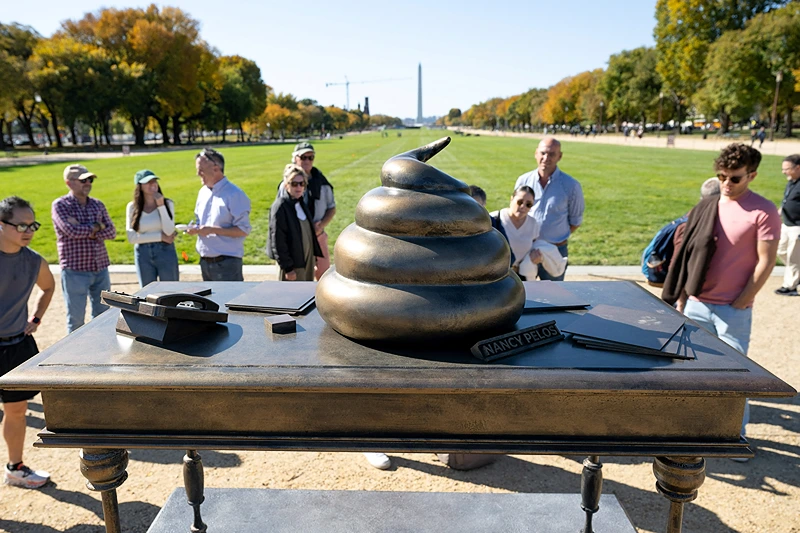Researchers uncover ancient tiny house amid city excavation project
Researchers uncovered a tiny house called the "House of Phaedra" during excavation work in the ancient city of Pompeii, Italy. Paintings of mythological scenes are depicted on walls.

Researchers came across a little house during excavation work in the ancient city of Pompeii, Italy.
The structure is named the "House of Phaedra" after the mythic queen of Athens. It has a well-preserved painting of her displayed on a wall, according to a Pompeii archaeological park press release.
While small in its size, the "House of Phaedra" is adorned with refined detailing, with scenes of nature and patterns found throughout the space.
WORLD’S SMALLEST INHABITED ISLAND FEATURES A SINGLE HOME AND TREE
Unlike other Pompeian homes, this building lacks an atrium, which is a central open-air space that collects rainwater, Reuters reported.
The home does have a courtyard with painted red walls. It includes a covered large tub.
Around the tub would have been a canal to allow rainwater to be collected through to a cistern below.
For more Lifestyle articles, visit foxnews.com/lifestyle
A lararium (shrine) displays painted motifs of birds, branches and snakes at the base with an opening for offerings, creating an altar.
"An elevated element that supports an egg, what would seem to be a fig and a date," and a pine cone were found on the altar, according to the press release.
POPULAR EUROPEAN CITY BANS LATE-NIGHT BAR CRAWLS IN ATTEMPT TO CURB DRUNK TOURISTS
Researchers suggest the last offerings were left before the eruption of Mount Vesuvius volcano in 79 AD that destroyed Pompeii.
A fresco painting depicting Phaedra and Hippolytus was discovered in well-preserved condition.
Phaedra is known for the tale of her love for her stepson that was not reciprocated and ultimately led her to commit suicide and accuse Hippolytus of rape, according to the World History Encyclopedia.
CLICK HERE TO SIGN UP FOR OUR LIFESTYLE NEWSLETTER
"It is an example of public archaeology or, as I prefer to call it, circular archaeology: conservation, research, management, accessibility and fruition form a virtuous circuit," Gabriel Zuchtriegel, circuit park director, said in the release.
Zuchtriegel added, "Visiting Pompeii and observing the work of archaeologists and restorers can help us understand why it is worth documenting and safeguarding the traces of the generations who lived before us."
Researchers are conducting analysis and investigation on the newly discovered structure.
Reuters contributed to this report.
What's Your Reaction?














